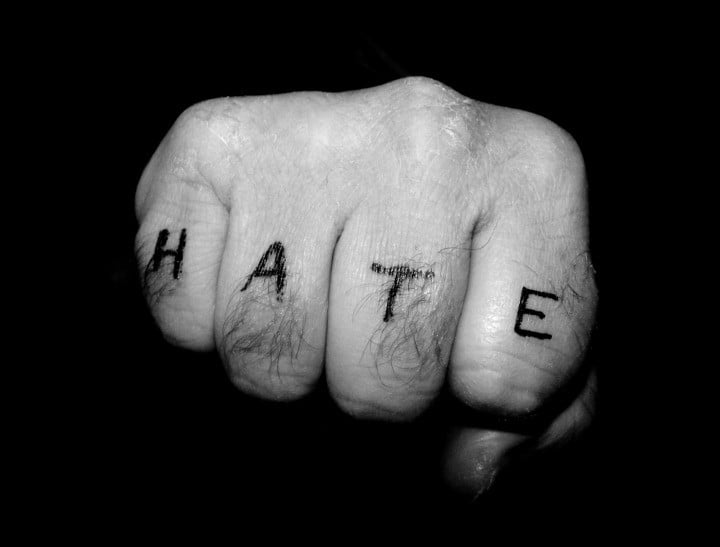
It is not easy to admit to just how racist you were.
There I was, a journalist of Asian background, listening to a man talk openly about how he had planned to kill as many Asians and Arabs as possible. But call me crazy: I found his honesty refreshing, writes Sarah Dingle.
“We were planning to just go into the cities and that, and just wipe out as many Asians and Arabs and that as we could,” Matt said.
“Oh,” I said politely. I took some notes.
This was a difficult interview for me.
No one’s ever said they wanted to kill me before.
As a journalist of Asian background – Malaysian Chinese to be specific – sometimes things happen to me while I’m doing my job which would not happen to most of my colleagues.
They’re usually quite minor, like that time I was in Tasmania for an investigation. I dropped into a tourism information centre full of Tasmanian wooden handicrafts for a map.
“Hi,” I said.
The woman took one look at me, and spoke loudly and carefully.
Related content: Watch this white supremacist find out he’s part African.
“We… sell… lazy… susans, if… you… want… to… look at them,” she said. (You know, lazy susans, those spinning wooden wheels on tables in Chinese restaurants.)
Every now and then, out in the field as a journalist, I get asked “Where do you come from?” (Answer: the ABC. But that’s not what they mean.)
Top Comments
Wow! Powerful interview.
This article was on the ABC at least a week ago. If you're going to reprint stories, at least do it in a timely fashion.
It is an excellent article though; it really shows how education and just engaging with other cultures is important and can change your whole view on the subject.